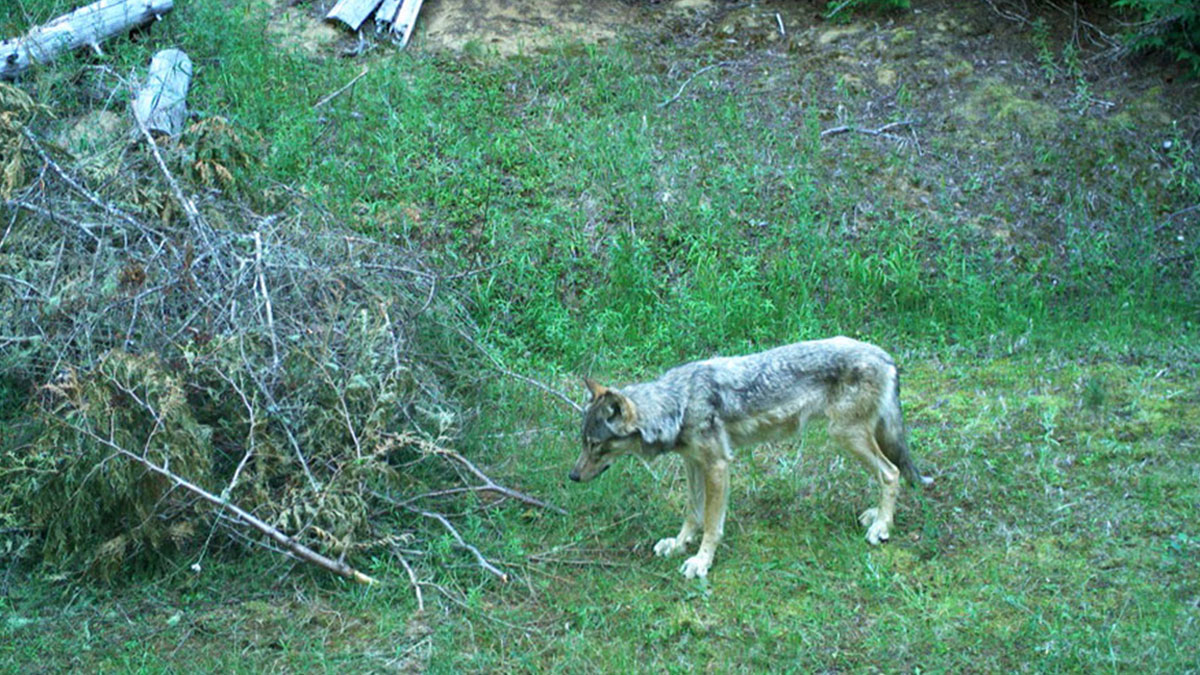Below is a news release from the Idaho Department of Fish and Game.
The Idaho Fish and Game Commission unanimously approved a new wolf management plan during its May 11 meeting in Jerome. The wolf plan drew roughly 2,500 comments during a 32-day public comment period, and it will shape Idaho’s wolf management over the next six years by outlining goals and strategies to manage Idaho’s wolf population to fluctuate around 500 animals.
The plan calls for managing wolves in balance with other big game, particularly elk, and minimizing conflicts with livestock. It incorporates knowledge gained from nearly three decades of wolf monitoring, management and understanding how wolves interact with other game animals and livestock and react to different levels and types of harvest.
Commissioner Don Ebert of Weippe, who recently took over as Commission chair, reflected on the decision by saying the Commission understands many people in Idaho don’t support killing wolves, which was reflected in public comments.
“I want those people to know I hear what they say, and I take it to heart,” he said. “I think all of us on the Commission give them due consideration, and I am the last person who wants to go out and kill all the wolves.”
But he also noted wolves have recovered well beyond minimums outlined in the Endangered Species Act recovery plan, and current hunting, trapping and management actions have barely kept their populations in check.
The goal is to gradually reduce the wolf population while carefully monitoring the progress and adjusting as needed while re-establishing balance with prey species and reducing wolf conflict with livestock.
“We’re not going to eradicate wolves. It is not our intention, and I do not believe we would have that ability even if it was our intention,” Ebert said. “We preserve, protect and perpetuate species as a whole, and all species in tandem, so the question in my mind becomes about balance, and I believe things are out of balance with the wolf population.”
Ebert noted the Commission will continue to be involved in wolf management and change course if needed.
“I think we need to have the ability to control wolf populations, and I honestly look forward to the day when I can sit here and say, ‘I think we need to back off on our wolf harvest,’ but I don’t think we are there yet.”
Fish and Game’s wolf population estimates are based on annual camera surveys and other methodology that showed about 1,337 wolves statewide during the summer of 2022, which is about 13% fewer than the 2021. Population estimates are based on camera surveys that measure the population near its annual peak.
At the end of 2022, Idaho had met or exceeded the U.S. Fish and Wildlife Services minimum recovery goals for wolves for 25 consecutive years. The Federal delisting rule published when wolves were removed from federal protection in the northern Rocky Mountains in 2009 stated that wolf population would be managed by the state in Idaho to average around 500 wolves. The delisting rule also stated that maintaining the wolf population at a higher level would reduce wild prey abundance and result in higher rates of livestock depredation.
Currently, Idaho has abundant and healthy elk populations statewide, however herds are unevenly distributed, and eight of Fish and Game’s 28 elk management zones are below objectives. In five of those zones, Fish and Game biologists have determined that predation and other factors are limiting herd growth.
(Photo credit: Idaho Department of Fish and Game)
